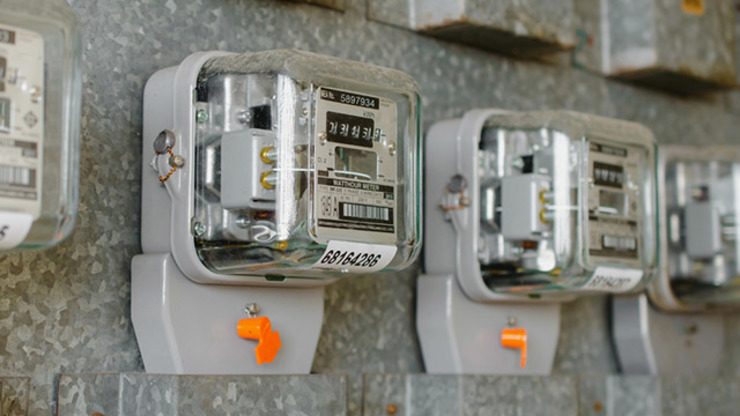SUMMARY
This is AI generated summarization, which may have errors. For context, always refer to the full article.

MANILA, Philippines – The Foundation for Economic Freedom (FEF) challenged before the Supreme Court (SC) the additional P0.040/kilowatt-hour (kWh) charge in electric bills meant to fund renewable energy production.
The group said the electric billing glosses over “the prevailing drastically low solar panel prices because the typical solar panel that used to cost $4 per watt of electricity now costs only 80 cents per watt.”
On Monday, March 9, FEF asked the High Court that it be granted intervenor status so it can resolve more effectively the legal dispute first raised by petitioner and lawyer Remigio Michael “Mike” Ancheta II.
At stake is “the economic welfare of the Filipino people who face the prospect of paying additional fees for electricity yet to be produced and/or consumed for the next 20 years even if the cost of producing renewable energy falls,” read the FEF petition-in-intervention made available to Rappler.
Ancheta had argued that the P0.0406/kWh feed-in tariff allowance (FIT-All) is unconstitutional as it goes beyond the mandate of the Renewable Energy (RE) Act of 2008 by collecting advance payment for power not yet generated.
Ancheta had stressed the danger of payment “ahead of the actual production, sale and use of renewable energy,” as some of these RE projects may not be completed. (READ: Stop new electric billing for renewable energy, SC asked)
“There is a probability that the electricity they are expected to produce will not materialize,” he warned.
Sanctioned under a Energy Regulatory Commission (ERC) order dated October 28, 2014, the FIT-All is meant to fund renewable energy producers as part of government efforts to ease dependence on fossil fuels.
The FIT-All has been included as a line item in electric bills since January, based on the ERC order.
While reiterating Ancheta’s arguments, the FEF added that the subject FIT-All would drive investors away.
“Instead of helping our economy, these high FIT rates are counter-productive and inflationary. Our current power rate is already one of the highest in the world. And because of this, investors are shying away from the country to put in their investments,” FEF’s pleading read.
The FEF is an organization advocating for economic and political liberty, good governance, secure and well-defined property rights, and market-oriented reforms. Its board is chaired by former finance secretary Roberto de Ocampo.
The group’s petition was filed by lawyers Paul Lentejas and Paul Jomar Alcudia.
Arguments
As it is, the FEF said foreign renewable energy producers already receive generous tax breaks from the Philippine government.
These include an income tax holiday for the first 7 years of commercial operations, additional income tax exemption on income derived from additional investments in the project, and duty-free importation of RE machinery, equipment, and materials in the first 10 years, among others.
They are also entitled to zero-rated value-added tax on purchases of local supply of goods, properties and services needed for the development, construction, and installation of plant facilities.
In the present pleading, the FEF cited the solar panel project of Leandro Leviste, son of Senator Loren Legarda, which was executed even prior to the collection of FIT-All.
“In fact, the indubitable proof – the proverbial “smoking gun” – that these FIT rates are so high is the fact that a new Filipino entrepreneur, Mr Leandro Leviste, has just recently launched his own solar panel project without his client having to contribute any centavo for the project,” the petition read.
“Clearly, since a new Filipino entrepreneur could do it, then all those foreign solar suppliers could actually invest in our country and be viable in their venture without practically any need for the FIT,” it added.
While prices of RE may be unpredictable, FEF said ERC is duty-bound to correct its policy given the “fast falling price of solar panels.”
Such a trend can be attributed to lower raw materials cost, better technology, and mass manufacturing in China, the group said.
FEF added that the FIT rates were determined without the prerequisite and RE law-mandated maximum penetration limits study, which would have reasonably estimated “the subsidy that the consumers are being asked to pay.”
The FEF also warned against increasing the installation targets for solar and wind energy, citing an earlier claim by distribution utility Manila Electric Company (Meralco) that such a move will jack up rates.
In the end, the group said the ERC must ensure that the “commercial utilization of renewable energy resources shall be made in the most efficient and cost-effective manner.”
Citing ERC’s mandate to “promote consumer interest,” FEF said the implemented FIT-All is “intended to benefit primarily big business to the prejudice of Filipino electricity consumers nationwide.”
Named as respondents in Ancheta’s petition, which FEF backs, are the ERC, Department of Energy, National Transmission Corporation, National Renewable Energy Board, and Meralco. – Rappler.com
Electric meter image via Shutterstock
Add a comment
How does this make you feel?
There are no comments yet. Add your comment to start the conversation.